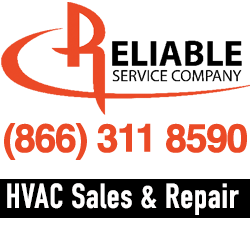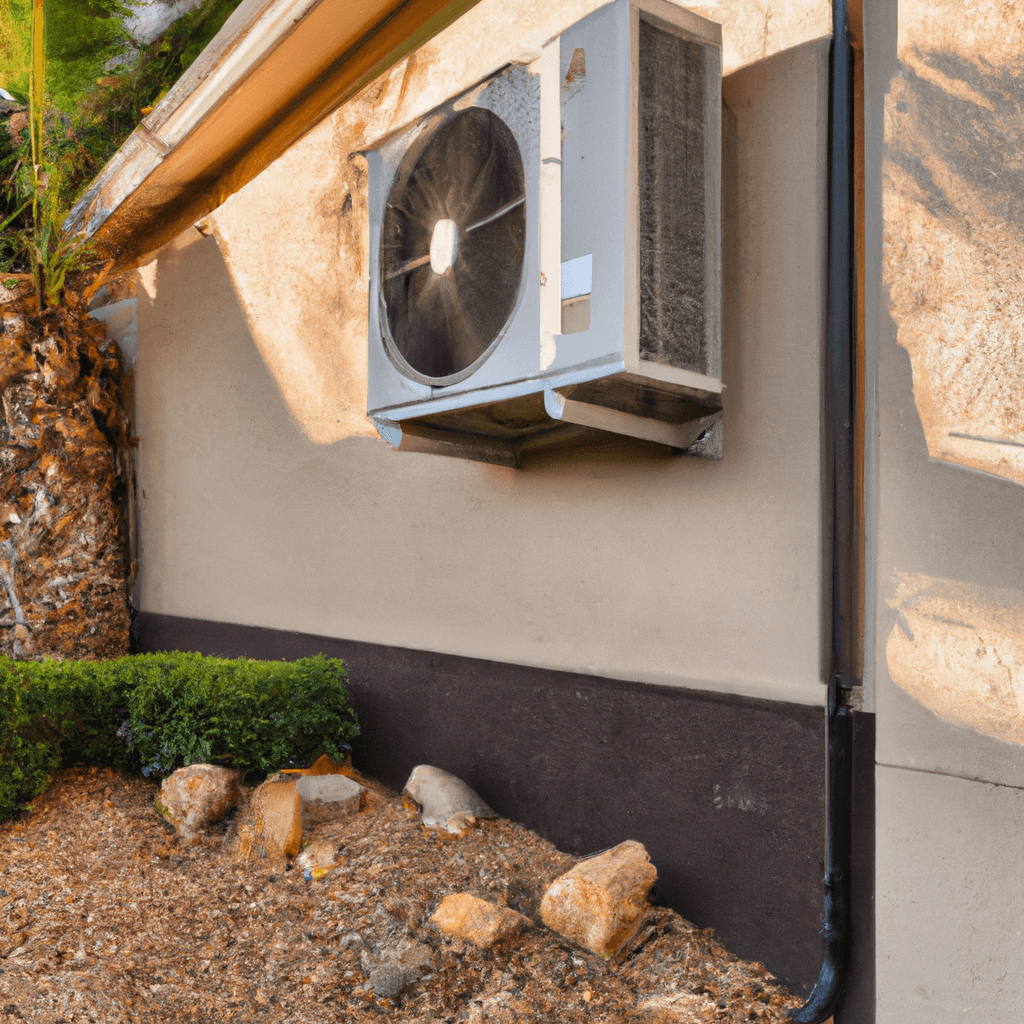What Are the Requirements for Installing a Residential Central AC?
When you are thinking of installing a central AC in your home, there are a few requirements you should be aware of. Installing a central air conditioning system can be a complex job, but with the right amount of research and preparation, you can successfully install your residential central AC and enjoy a cooler, more comfortable home.
Understanding the Minimum Requirements
Before you get started with installing a residential central AC, you should understand the basic requirements. You will need a functioning AC unit with an electrical power source, a main line of refrigerant, an evaporator coil and blower fan. Additionally, you’ll need a thermostat, an outdoor condenser unit, and a drain line that allows condensation to be released outside the home.
Choosing an AC Unit
When selecting a central AC unit, you’ll need to ensure it matches the size and energy output of your existing central AC system. An experienced HVAC technician can help you determine the right type of AC for your home and provide you with information on the various models available. Additionally, your technician can help you determine the best location for the unit and offer advice on the proper way to vent your system, as well as recommend a specific type of insulation for your home.
Preparing the System
Before you can begin installing the central AC unit, you’ll need to create an insulated deck beneath the unit, as well as build a platform that provides enough space for the unit itself. This platform will also need to provide support for the system’s interior components. Additionally, you’ll need to ensure there is no interference with the system’s operation, such as nearby trees or shrubs, or any other obstructions.
Connecting the Parts
Once the platform is ready, you can begin installing the unit. The blower fan, evaporator coil and thermostat are connected to each other and then connected to the outside condenser unit via the main line of refrigerant. The condenser unit is then connected to the electrical power source, with the exception of models that require the use of a transformer. Finally, a drain line is connected from the outside unit to an exterior sump-pump connected to the system drain.
Finalizing the Installation
Once all the parts and components are connected, the final step involves filling the system with the appropriate amount of refrigerant and properly venting the system. This includes cutting and attaching the necessary venting pipes and securing them with the appropriate clamps. A qualified HVAC professional can assist you with this process, ensuring the system operates as it should. Once the refrigerant is filled and the vents are securely in place, the central AC unit can be switched on and set to cool.
Installing a residential central AC is complex and best left to a qualified HVAC technician. However, having an understanding of the basic requirements and the installation steps involved can help you be better prepared and make the process a bit easier. If you need help selecting the right AC unit, or installing the system, contact Local Reliable Appliance Repair at (866) 311-8590. They have an experienced team of HVAC specialists ready to help.



Residential AC Specs: Best Practices for Installations
Installing a residential air conditioner (AC) is a major investment of time, money, and resources. It is important to take steps to ensure the installation meets all local codes and manufacturer recommendations to avoid costly repairs and energy inefficiencies in the future. The following are some best practices for following residential air conditioning specs.
Follow Manufacturer Recommendations
The first priority when installing a residential AC is to follow the manufacturer instructions and recommendations. These instructions will cover the procedures related to unit size, placement, wiring, and other technical details. Not following these instructions can lead to problems with the operation and longevity of the unit, so it is important to take the time to read and understand the manufacturer directions.
Hire a Professional Technician
Many installation considerations are best handled by a trained and certified HVAC technician. From selecting the best size unit to addressing any potential placement issues, an HVAC technician can provide valuable guidance to ensure the installation is done correctly. The technician can also identify any possible problems before the installation begins and can recommend the best solutions.
Check Local Codes and Regulations
It is important to check local codes and regulations when installing a residential AC, especially if the unit is being placed inside. Some areas may have restrictions about where the unit can be installed, what type of equipment can be used, and the proper installation methods. Additionally, local codes may specify additional safety considerations that must be addressed.
Perform Regular Maintenance
Regular maintenance and preventive action is the best way to avoid any issues with a residential AC. Taking the time to inspect the unit regularly and having it serviced by a professional every year can help to identify any potential problems before they become more serious. Additionally, regularly changing the unit’s filters can help maintain efficiency and facilitate better air flow throughout the home.
Installing a residential air conditioning system is an important decision, and one that should be done carefully. Following the instructions of the manufacturer, hiring a professional HVAC technician, and taking the time to check local codes and regulations can help ensure the unit is installed safely and efficiently. Additionally, regular preventive maintenance and upkeep are essential to help keep the unit operating properly. With the right steps, home owners can enjoy the benefits of their AC unit for many years to come.
Average Repair Cost for Residential AC Specs
For the best professional advice on the average repair cost for residential air conditioner (AC) specs, we recommend calling Local Reliable Air Conditioning & Heating at 866-311-8590.
If you’re looking for a ballpark estimate, the minimum repair or installation cost in California cities is up 20%. That price could range from $1000-$2000, depending on the complexity of the job. In addition, materials and labor may also be necessary, and may need to be included in the repair cost.
The following is a list of parts that could possibly be needed to repair your AC unit:
- Condenser Unit
- Refrigerant
- Compressor
- Connecting Wires
- Wall Sleeve
- Grilles and Diffusers
- Replacement Filters
- Doors and Insulation
The repair cost for these parts can vary far and wide, depending on the brand and model of AC unit and any additional features or accessories. However, having to replace a complete system can bring the cost up significantly.
When it comes to residential AC specs, it’s important to get the best professional advice you can to ensure a solid repair that lasts. That’s why we highly recommend calling Local Reliable Air Conditioning & Heating at 866-311-8590, where they can provide the most accurate quote on the repair cost of your particular unit.
Saving Money with Residential Air Conditioning Specs
When looking for an air conditioning and heating service provider, customer should pay special attention to the specs and qualifications of the provider. Choosing the right AC specs can save money and guarantee the customer benefits from reliable installation and maintenance quality.
California residents searching for a reliable air conditioning & heating company should consider Reliable Air Conditioning & Heating. A family-owned business with more than 5 years of experience providing same-day services and a full range of appliance and AC repair and installation, Reliable is the ideal reliable service company.
Reliable Air Conditioning & Heating guarantees customers fair and affordable pricing, quality work, as well as licensed and insured technicians. They provide residential AC specs based on customer’s needs. Customers can also benefits from the 90-day warranty provided for all jobs.
Choose Reliable Air Conditioning & Heating understands the customer’s need for cost saving, reliable services with quality residential AC specs and specifications. With a full range of appliance and AC repair services and installations, Reliable Air Conditioning & Heating is sure to offer the best services.
Reliable Air Conditioning offers same-day services and has rigorous standards for hiring and training their technicians, guaranteeing customers quality work for every job. Their licensed and insured technicians have a minimum of 5 years experience and are committed to providing fast, reliable services to all their customers.
From providing standard residential AC specs to offering quality repairs and installations, customers are sure to find the reliable and affordable AC & Heating relief they need. If you’re in California, consider Reliable Air Conditioning & Heating for all the Appliance and AC Repair needs!
Frequently Asked Questions (FAQ)
What are the requirements for installing a residential central AC?
To have a residential central AC system installed, you’ll need some specific components. First and foremost, the AC unit should be matched to the size of your home. An experienced HVAC technician will be able to help you choose the right size. Additionally, you’ll need a return air duct, air vents, a condensate drain, and insulated flexible ducting between the AC unit and the vents.
Are there any special specs for residential AC units?
Yes. Residential air conditioners come with a vast array of options and features. It’s best to speak to a professional HVAC installer who can help you pick the best system for your needs. The age, size, and climate of your home, as well as your individual budget, can all influence which type of system might work best for you.
Should I attempt to install a residential central AC myself?
No, residential central AC installation is best left to a qualified HVAC technician. A proper installation requires the right tools, skills, and experience. Additionally, a layperson may have trouble deciphering the necessary specifications, codes, and regulations that apply to their particular area.
Can I get help with my residential AC installation project?
Yes! If you need assistance with your residential AC installation, contact a reliable and experienced appliance repair service. They will have the necessary know-how, tools, and expertise to assess and install your residential AC system in accordance with local codes. For an experienced and reliable service, call Local Reliable Appliance Repair at (866) 311-8590.

